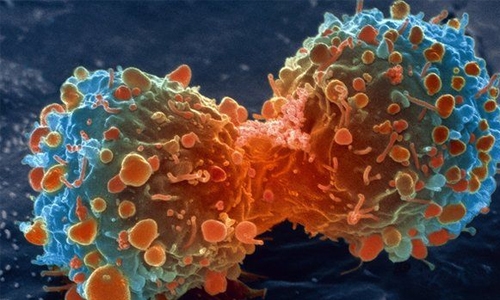Five warning signs that show young people might have cancer
Almost a third of young cancer patients are diagnosed when their health deteriorates to the point of being admitted to Accident and Emergency, research from the Teenage Cancer Trust has found.
Cancer in young people is notoriously difficult to diagnose. Around 2,500 young people aged between 13 and 24 are diagnosed each year, meaning that cancer is unusual and suspicion small.
Almost a third of young patients have to visit a GP three times or more before getting a referral, according the Teenage Cancer Trust.
To mark Teenager Cancer Action Week, which aims to raise awareness of the #5signs of cancer in young people, the trust revealed the five most common warning signs of cancer in young people are persistent and unexplained.
They said the signs can often be mistaken for common illnesses, but knowing them could save a life. They are:
Pain
Lump, bump or swelling
Significant weight loss
Extreme tiredness
Changes in a mole
If you are worried you have cancer the Teenage Cancer Trust advise you see a doctor, remaining persistent if you feel that your issues are not being solved.
Jess Terry, 19, a former teenage cancer patient who had Hodgkin's Lymphoma said: "I felt really unwell for nearly a year. I had a lump in my neck and felt constantly tired. My skin was unbearably itchy and I had night sweats. Looking at photos I'd lost loads of weight too, but I didn't notice at the time."
"I was diagnosed with stress and told I'd feel better if I put my mind to it. It took 8 months for me to be diagnosed with cancer. It's so important for everyone to be more aware of the signs and for young people to be persistent with the doctors if they are not getting any better."
Siobhan Dunn, Chief Executive of Teenage Cancer Trust said: "Young people must be educated about the signs of cancer to ensure they seek help early and we need to work with GPs to try and develop a safe system for quick diagnosis."
Dr Angel Edgar, National Cancer Research Institute Teenage and Young Adult Clinical Studies Group Chair, said: "Delay in diagnosis in teenagers and young adults with cancer may be one factor contributing to the lower reduction in cancer mortality rates compared with children or older adults in recent years."
"Early detection, clearly defined referral pathways and equitable access to specialist services will avoid delays and enable treatment to start as promptly as possible."
Related Posts

